Horrific Inquiry: MAMA (2013)
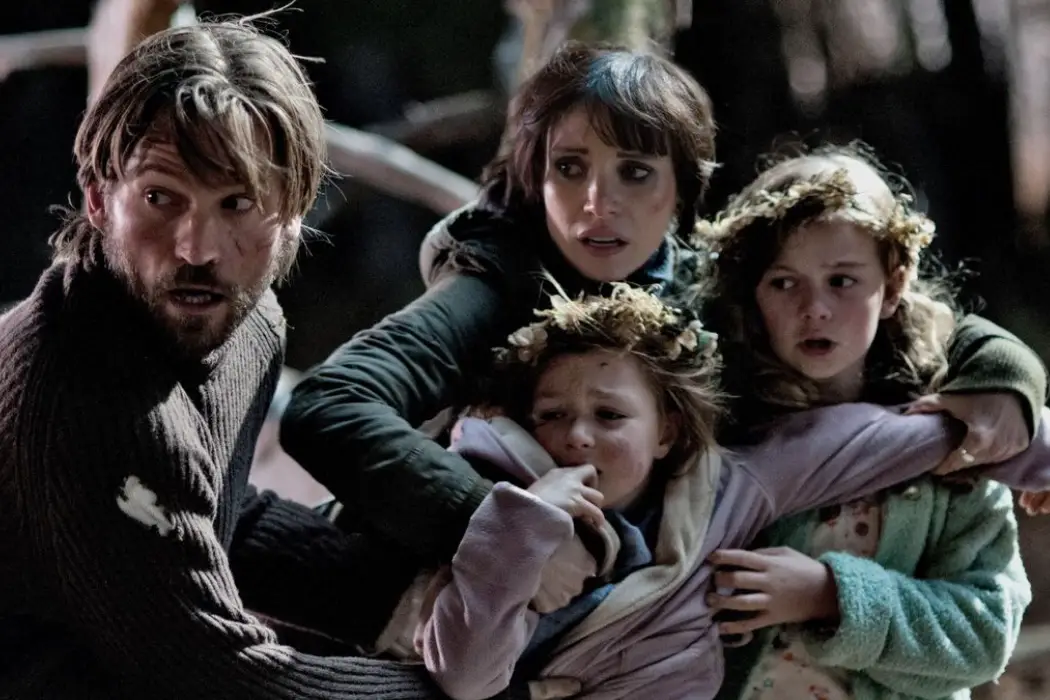
Stephanie Archer is 39 year old film fanatic living in…
Welcome back to the scariest, and at times goriest, column here at Film Inquiry: Horrific Inquiry. Twice a month, I will be tackling all things horror, bringing two films back into the spotlight to terrify and frighten once more. And occasionally looking at those that could have pushed the envelope further. Join us as we dive deep into the heart of horror, but warning, there will be spoilers.
It’s Mother’s Day weekend! And while the holiday is traditionally filled with flowers, chocolate-covered strawberries and handmade cards to Mom, here at Film Inquiry it is another reason to get right back to the horror. In honor of Mother’s Day, it seemed the right time to dive into Andy Muschietti’s Mama. From a horrific kidnapping to the haunting power of maternal grief, Mama spans time and space to bring to life both the beauty and horror of motherly love.
Effective Opening Sets the Framework
As Mama opens, “once upon a time” is slowly scribbled onto the screen, clearly from the hand of a young child. As chilling as it is mood-setting, the film immediately captures the eyes of its youth. As the screen fades to black, it opens on a car. The door is open, but it is empty, looking almost as though it has crashed – the occupants in a hurry to leave the scene. The only sound is coming from the car’s radio, a radio broadcaster covering the events of the day. As he cites the economic crash, his news story brings viewers audibly face to face with the story of a man who shot his two associates, the camera closing in on the car, almost as though it is leaning in to hear better. The story is broken through by the sound of a gunshot from inside the eerie-looking house in the background.
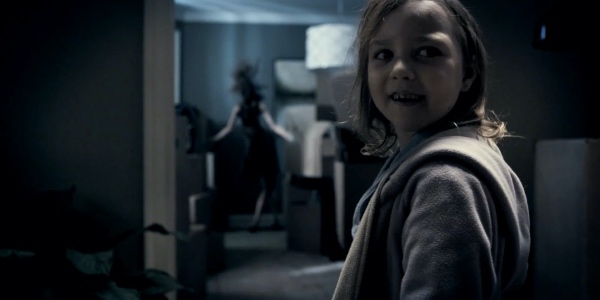
Victoria (Morgan McGarry) is in her sister Lily’s (Maya Dawe) room, confused and unsure, becoming more unsettled when her father Jeffery (Nikolaj Coster-Waldau) storms into the room. He is disheveled and distraught, grabbing Lily and telling Victoria it is time to go. As Victoria questions whether her mother will be bringing her to school today, her father informs her “she is not feeling well”. If viewers have not put the pieces together yet, it is in this moment an understanding forms that not only has he shot his wife but that he may be the man the radio is talking about. As he grabs his children and leaves the house, there is the feeling that things are about to get worse.
The radio remains the viewer’s narrative informant, relaying the information as it is happening, interwoven in the action, and never intrusive. As Jeffrey drives absent-mindedly in the winter storm, the radio speaks about the girl’s kidnapping, the father increases the speed of the car. As he begins to hydroplane, Victoria crying he is going too fast, the car goes off the embankment. It is a strong opening early on, one that in essence is mirrored later in the film. And while the girls and Jeff survive the fall, tragedy never forgets.
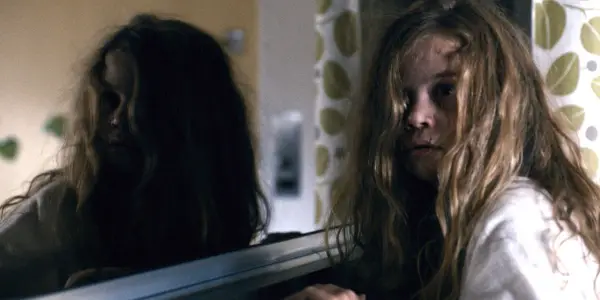
Surviving the crash, Jeffery and his daughters trek through the snow, stumbling onto a cabin that may provide them shelter from the cold. Yet, where the day has been altered permanently by the actions of Jeff, the paranormal has its own ways of enacting change. As Victoria looks at the house, a moth flutters along the window, a shadow quickly passing the window frame. As she struggles with her fear, and subsequent fascination, with the flowing lady just outside the window – her father struggles with his guilt and willingness to live. Having murdered three individuals today, he turns his eyes towards himself, unable to take his own life until he has taken theirs as well. But the shadows transform from darkness to protection, and the film fast forwards.
Welcome Home Mama
As the film transitions five years later, little is known about the girls, their kidnapping is still a mystery, and Lucas (Nikolaj Coster-Waldau), Jeffery’s brother, is still funding a search to find them. And find them he does, yet not how he had expected. Having lived in the woods for the last five years, they are malnourished and underdeveloped. Transferred to the local psychiatric facility, they begin making progress, eventually able to return home with Lucas and his girlfriend Annabel (Jessica Chastain). And while the opening of the film was a strong foundation, this is where the true horror begins to form.
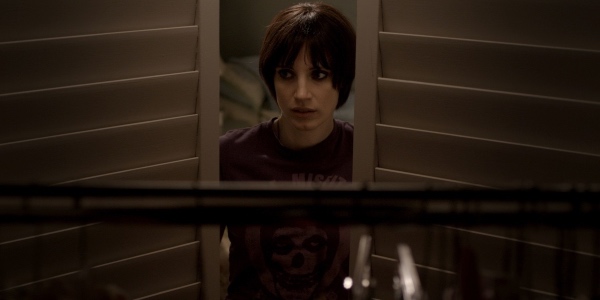
Mama is not in a rush to let us see Mama, allowing us to experience her in small fragments – Lily (Isabelle Nélisse) play-fighting with an unseen entity in her room, wisps of hair trailing out a window, and shadows moving just out of focus. But with each incident, Mama comes more and more into focus. While this can be seen in the exposure of her on film, it is also seen in the progression of Victoria (Megan Charpentier). She spent the last five years in the woods without her glasses, the true image of Mama blurred. When she comes to live with Lucas and Annabel, she is given a new pair of glasses, one she is constantly seen removing whenever she goes to interact with Mama. Yet, as Mama comes more and more into focus for the camera, so too does it for Victoria.
And come into focus Mama does. By the end of the film, her full form is on display. And not for a climactic finish, but for a large part of the film’s conclusion. Unfortunately, this is where the film loses some of its strength as the quality of Mama has not aged as well as one would have liked. It feels out of place, almost dreamy, and clearly influenced by the films of Guillermo del Toro – an executive producer of the film. Mama loses much of her intensity and terror when she is fully shown, her interactions losing credibility and authenticity in her full crafting. Though this feeling is short-lived as the final moments with her and Lily are beautifully captured within the capsule of unrelenting and unconditional love – within the unbeatable bond of mother and daughter.
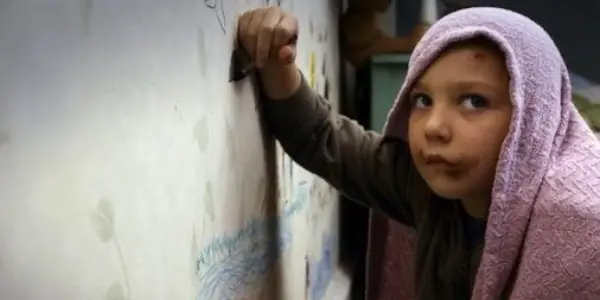
I would be a liar if I said that Mama didn’t have other struggles beyond its full display of Mama. Where editing is sometimes off-kilter, and not in a good way, it is Dr. Dreyfuss (Daniel Kash) that brings the film down. While his character is needed to fuel the story forward, his research provides the explanations and eventual direction of some of the film’s characters, at times he is one of the most out-of-place elements of Mama. Primarily when he is providing voiceover narration.
Throughout Mama, he can be heard reading aloud his journal entries, capturing both what he has observed and what he has learned. While this is important, it may have been more effectively executed through conversations with Lucas or Annabel, rather than a read-aloud journal entry. This film is primarily framed from the perspective of Annabel and the girls, yet the voiceover forces the film to alter its perspective to that of Dreyfuss. It leaves these moments disjointed, as though the film had been from his perspective the entire time. This coupled with scenes that fade to black as though they are waiting for a commercial to follow disconnect the film from its audience and its level of intensity.
Conclusion: Mama
If I had to pick one element of the film that was a stand-out, it would be the hair of Mama. Now, her entire essence had me pausing before entering my darkened basement, momentarily fearful of what lurks in the shadows, but it was the hair that truly remained memorable. The wisps of hair are a constant element of Mama, no matter how much you see of her. Slipping through doors, windows, cracks in the wall, along the floor, and even wrapping around others briefly – it is the defining element of Mama. Yet, in the terror it holds, there is an almost a fantastical nature to it, hypnotic and mesmerizing. As if it retains the feeling of a mother constantly reaching out with unrelenting hope. It is many times the first thing you see, as well as the last. And one of the best aspects of Mama.
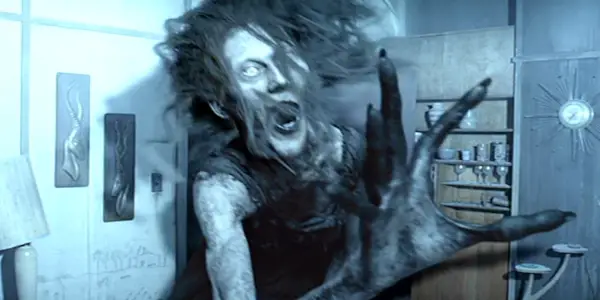
Mama also extends its definition of mother – as well as the idea of love evolving between individuals. Annabel is a hesitant participant in caring for the girls. She finds herself unqualified, constantly toting how it is not her job, yet over time she thrives. By the film’s end, both Lily and Victoria have each developed their idea of what a mother is, rather than what the name means, each choosing which direction they want to follow and which mother they choose to bond with. It is an intense concept, radiating the jealousy of Mama in contrast to Annabel’s hesitation. But at the end of each of their journeys, both light and dark, there is a peace found in finding and reconnecting their bonds with Victoria and Lily.
Mama may not be the go-to horror film, but in the season of honoring mothers, it is the perfect film for the horror fanatic. As Lily and Mama have their final moments in the end, there is an encompassing feeling of unconditional love that breaks through the darkness of the night. That no matter what happens, a mother is always a mother.
Have you seen Mama? What did you think? Let us know in the comments below!
Does content like this matter to you?
Become a Member and support film journalism. Unlock access to all of Film Inquiry`s great articles. Join a community of like-minded readers who are passionate about cinema - get access to our private members Network, give back to independent filmmakers, and more.












